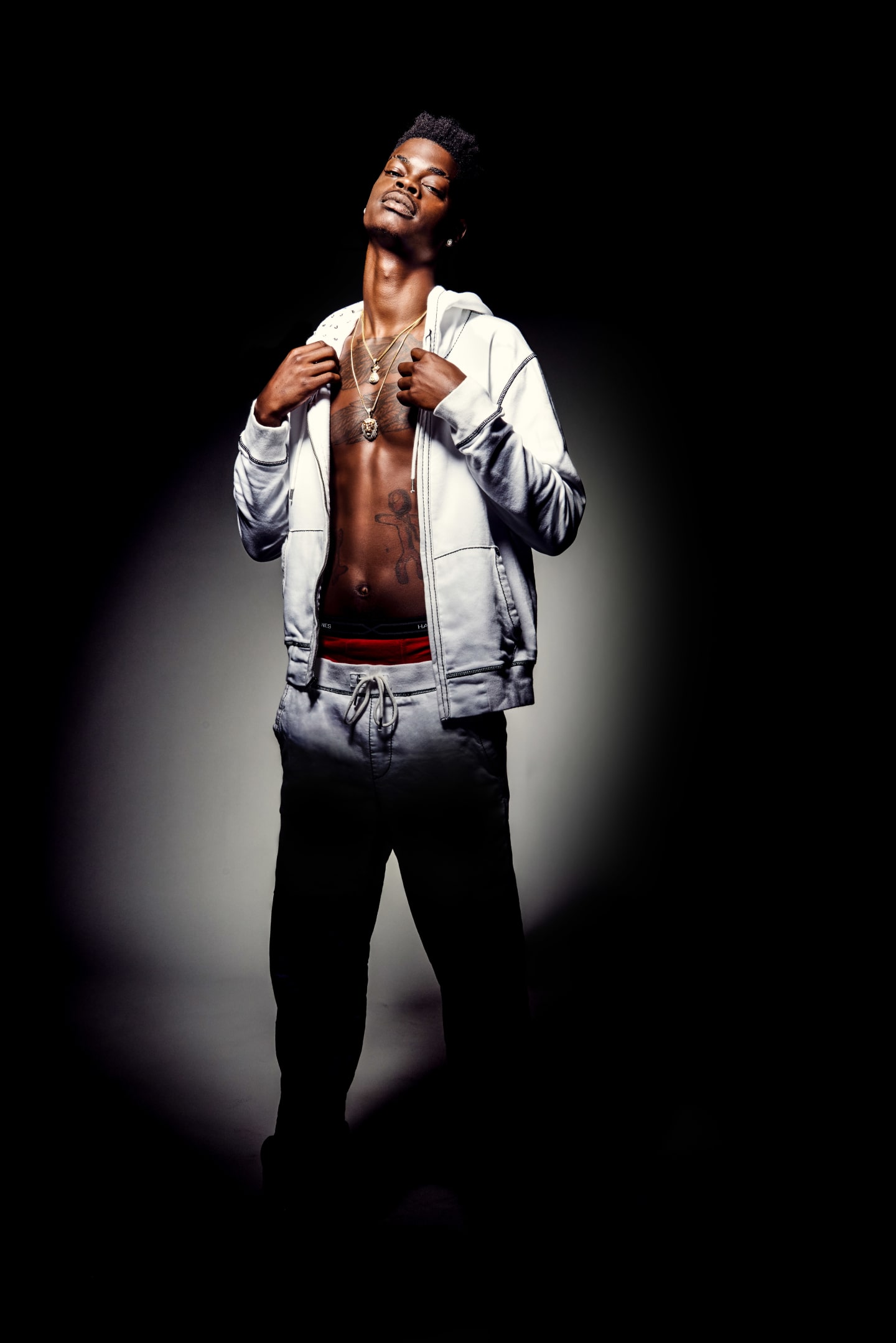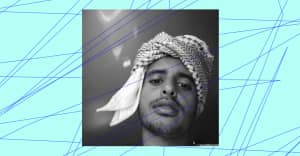 Meredith Truax for Def Jam Records
Meredith Truax for Def Jam Records
In the video for Lajan Slim’s breakout single “Haitians,” released in June, the Broward County rapper wears Haiti’s bicolor flag around his forehead and his waist. Red and blue are easily the most prominent colors in the video; that the 22-year-old rapper is proud of his heritage is evident. Lajan Slim is from Lauderhill, a small city that’s just a 30-minute drive from Miami on I-95. As he told The FADER over the phone, “I had a chance to move, but I just love Florida too much.”
Since the release of “Haitians,” Lajan Slim has caught the attention of Drake, 2 Chainz, and Pusha T. In September, he announced a deal with Def Jam, and on Friday released his debut mixtape, Hood Olympian, on iTunes, Spotify, and SoundCloud.
Ahead of the tape’s release, Lajan Slim spoke to The FADER about his his longstanding love of performing arts, and why Floridians love “fast versions” of their favorite rap songs.
How did you first start making music?
I’ve always been interested in music and art, and I’ve always had a passion for writing. I also did a lot of drawing, dancing, and stuff like that when I was growing up.
I’ve always had my own studio too. I would just record myself. My mom first got me a computer with a little mic. Then my friend gave me a USB mic, and I would put that inside of a shoe to record on. The equipment got better over time due to hustling.
Has your mom always been supportive of your desire to rap?
Definitely. She was with me the first time I ever performed, when I was 5 years old.
How did you come to perform when you were 5?
I used to go to this school in Miami called North Glade and there was a music teacher there who took notice of how creative I was. I have ADHD, so I was always finding creative ways to keep myself busy in school. I remember one day, she asked me, “Do you want to be in a play?” And I was like, “Yeah.”
I was Santa Claus in the play — he was on trial against King Midas. Santa Claus was trying to fight for Christmas, and King Midas was trying to convince the kids that gold and money was the way. I was being the spirit of Christmas and letting them know that love and joy is the way. I ended up writing a rap for the show and performed it. Ever since, I’ve always loved performing. I made it my passion.
What does the word “Lajan” mean?
It means “money” in [Haitian] Creole. It describes me as a hustler. I was always strengthening my money and my business so they called me “Lajan,” and I ran with it.
How did you end up signing with Def Jam?
A lot of people were reaching out. “Haitians” and my other music was buzzing in Florida, in the streets and in the slums, so a bunch of labels starting reaching out to me. But I felt like Def Jam was the best opportunity for me to do what I do best. They put me on a platform to provide for myself and my family.
“It’s like the front yard and the backyard. The sunshine and beaches are up front but in the back there’s hard concrete, police brutality, social injustice.”
How does wider Broward County interact with Miami, the big city in the region?
Well there’s a lot of tourism in South Florida. You come here and have the beautiful beaches like Las Olas and South Beach. But just a mile outside of that you have the projects. It’s like the front yard and the backyard. The sunshine and beaches are up front but in the back there’s hard concrete, police brutality, social injustice. You got it all: the projects, the slums, everything.
Do you think the way that the rest of the country views Florida’s rap scene has changed recently as a result of artists like Kodak Black and yourself?
I definitely think Kodak did a great deal to shine a light on the region. What he did was remarkable. The more artists, like Kodak and myself, that come out of our region, the more the rest of the country has to pay attention. We go underrated. There aren’t the big record labels, or things of that nature, in Broward County. So you have to be really poppin’ to make it outside. Miami is the only big market because they have all the strip clubs.
When I go on YouTube to listen to rappers from your area of the country, I’ve noticed a lot of accounts that post “fast” versions of songs. Is that a South Florida thing?
[Laughs]. Yeah, that definitely is a South Florida thing. I don’t know why. We like everything so uptempo because it adds more rhythm to the song. I guess they don’t really care too much about the words because you can’t understand them. It’s more about the beat. A lot of people I know will say, “Why you don’t make your music fast?” They’ll hear the song fast and then they’ll hear it slow and be like, “I only liked it when I heard it fast.” They’ll know that song regular but only like the fast version.
How did you decide on the title Hood Olympian for your debut mixtape?
It’s my story. The trials and tribulations. Hood Olympian means a state of mind, or a person who has overcome the obstacles of the projects or the hood. In the Olympics, you go through all the circumstances to achieve the gold medal. I went through all the circumstances you can name in the projects, but I never let it downplay me or hold me back. I never had no chip on my shoulder against the world. It just made me work harder to make it out. And now, here I am.
Listen to Lajan Slim's Hood Olympian mixtape below.
